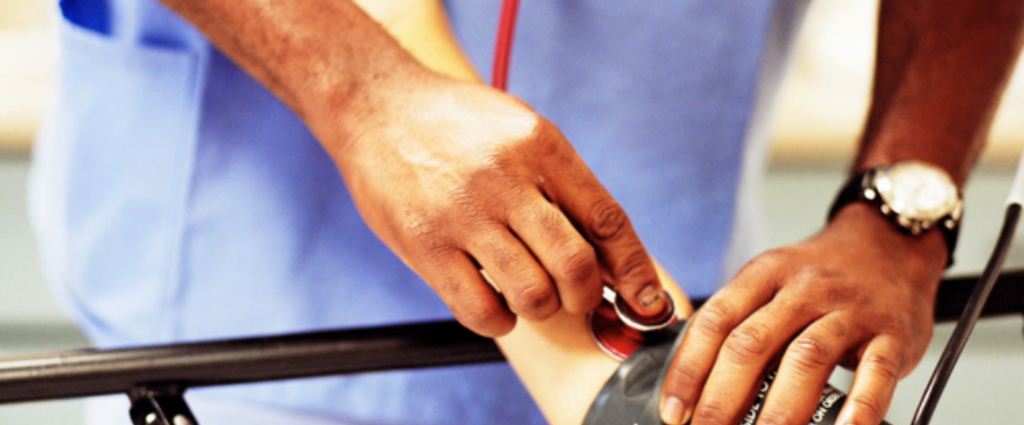HIV & AIDS Epidemic In Nigeria And Its Preventive Measures

HIV and AIDS epidemic started to rear its ugly head in Nigeria in mid-1980, and the HIV infection or transmission rate has spread like a wildfire over the past years, with consequential devastating effects on the health, welfare, economic and social progress of the country.
Nigeria has the third largest infected population of People Living With HIV and AIDS (PLWHA) in the world, after South Africa and India, and it is an enormous country where HIV infection remains an issue that demands a systematic and high-tailored intervention approach.
HIV (Human Immunodeficiency Virus) simply explained, is a virus that attacks the body immune system (natural defense system) and without a strong immune system, the body has trouble fighting off diseases, and both the virus and the infection it causes is called HIV.
The presence of white blood cells are critical for the immune defense system in the body and when HIV infects, consequently, it destroys certain white blood cells called CD4+ cells, as many of the CD4+ cells are destroyed, the body will be unable to defend itself against infection.
AIDS results as the HIV infection reached its terminal stage, and people living with AIDS have a low number of CD4+ cells and are easily vulnerable to infections or cancers that hardly occur in healthy people with serious complications.
When affected with HIV, its infection doesn’t necessarily mean the immediate presence of AIDS, even without treatments, as the gestation period for AIDS in most cases take up to 10-12 years to progress or manifest to AIDS.
There are two types of HIV, they are;
- HIV-1 and
- HIV 2
HIV-1 causes almost all the cases of AIDs and HIV-2 is a dominant source of an AIDS-like illness.
Early signs, symptoms, and timing
When an HIV infection caused by the human immunodeficiency virus occurs, patients are advised to watch out for the early symptoms, as early detection is an added advantage, when immediate medical treatment is followed purposefully to control the virus and possibly slow the progression of the virus into full blown AIDS.
Firstly, the symptoms associated with flu may arise as early signs of HIV, other signs include;
- Headache
- Fever
- Sore throat
- Ulcers in the mouth
- Night sweats
- Tiredness
- Rashes
- Swollen lymph nodes
- Muscle and joint pain and diarrhea
The gestation period for early symptoms could be one to two months of infection, however, the manifestation of signs can happen as early as two weeks after exposure and some people may not experience early symptoms when infected and to be rest assured, a test becomes necessary to determine one's HIV status.
Causes of HIV
HIV is not contagious as the virus cannot survive long outside the body and can only be transmitted through the direct exchange of certain body fluids such as blood, semen and virginal fluid during sex session and can also be transferred from one person to another through:
- Unprotected virginal or anal intercourse with an infected person.
- Injection with contaminated needles.
- Use of contaminated surgical instruments.
- Blood transfusion with infected blood.
- Mother's infection to child at birth and breast feeding called vertical transmission.
- Contact of a mucus membrane surface with infected blood or body fluids.
Diagnosis of HIV
Diagnosis of an infected person can be carried out by testing their blood for any antibodies to HIV. The presence of HIV antibodies take up to six months to be produced in large quantities needed for standard blood tests and subsequent tests are advised to obtain a correct HIV status.
HIV & AIDS treatment
The HIV treatment is basically addressed with intakes of medicines that slow the progression of the virus in the body or stopping the multiplication of itself.
Presently, there is no cure for HIV infection and AIDS, as the intakes of the drugs do not eliminate the virus out rightly from the body but keep the amount of the virus in the body low and the amount of the virus in the blood is called viral load.
And most people undergoing treatment of HIV infection take three or more drugs and this is called combination therapy which can also be called Anti-Retroviral therapy (ART) – consisting of the combination of at least three anti-retroviral (ARV) drugs to maximally subdue the HIV virus and stop the progression of HIV disease, which is the most effective treatment for HIV, as witnessed by huge reductions in rate of death and suffering, when the use of the potent (ARV) regimen is accessed at the early stage of the disease.
In addition, evidence from study shows that early treatment at the time of detection of the HIV infection (when the immune system is very strong) proved to be more effective at protecting the health of people with HIV and also helps to protect partners from being infected and treatment is advised as quickly as possible at the time of early detection or diagnosis.
Preventive measures
With the absence of a true cure and vaccines to prevent HIV, the only way to avoid HIV infection or prevention can be avoiding any instances that can result to this infection, such as needle sharing, unprotected sex, and blood transfusion.
The increased activities of the National Agency For The Control Of AIDS (NACA) in Nigeria is geared towards the eradication and reduction of infection rate, by making available the HIV drugs (therapies) through the created HIV & AIDS centers, and has evenly spread out in all states of the Federation for easier accessibility and this greatly extend years and quality of life and consequently has resulted in domestic decrease in AIDS deaths in Nigeria.




